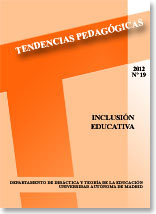EVALUATION CRITERIA FOR TEACHING AND PROCESSING PROCESSES LEARNING OF A DIGITAL CHESS PROGRAM
Keywords:
Chess, new technologies, online education, didactic material, e-learning environment.Abstract
This article is based on a thesis project carried out in the province of San Luis, Argentina. It highlights the importance of teaching and learning chess online through the use of new technologies. The article is based on the claim that there is a lack of systematic study of the use of ICT for educational ends in the teaching of chess at the primary level. It also underlines the importance of integrating chess into the primary school curriculum, mainly in areas distant from urban areas. The main purpose of the article is to provide an appropriate set of criteria for assessing the teaching and learning of chess online, such as the evaluation of the e-learning environment and its execution, the didactic material and the online tutoring.Downloads
References
BAZÁN, P.; SALINO, F. (2009). Ajedrez. Iniciativas de la Agenda Digital de San Luis. La Punta. Argentina: Universidad de La Punta.
CANALES REYES, R. (2006). Identificación de factores que contribuyen al desarrollo de actividades de enseñanza y aprendizaje con apoyo de las Tic, que resulten eficientes y eficaces. Análisis de su presencia en tres centros
docentes. [Tesis Doctoral]. Barcelona, España: Universidad de Barcelona.
DEL MORAL, Mª E.; VILLALUSTRE, L. (2003). La acción tutorial en Rur@lnet: Una experiencia universitaria de teleformación. Madrid: Actas del II Congreso La Educación en Internet e Internet en la Educación.
DEL MORAL, Mª E.; VILLALUSTRE, L. (2009). “Evaluación de prácticas docentes universitarias desarrolladas en entornos virtuales”. Pixel-Bit. Revista de Medios y Educación. Nº 34 Enero. Pp. 151 – 163
DÍEZ FERNANDEZ, O. (2006). Concepto, metodología y retos de la evaluación on line: Buenas prácticas para su fiabilidad. Comunicación presentada al III Congreso Online del Observatorio para la Cibersociedad.
FERNÁNDEZ AMIGO, J. (2008). Utilización de Material Didáctico con Recursos de Ajedrez para la Enseñanza de las Matemáticas. Estudio de sus efectos sobre una muestra de alumnos de 2º de Primaria. [Tesis
Doctoral]. Bellaterra, España: Universidat Autónoma de Barcelona.
GAIRÍN SALLÁN, J.; FERNÁNDEZ AMIGO, J. (2010). “Enseñar matemáticas con recursos de Ajedrez”. Tendencias Pedagógicas Nº 15. Vol. 1.
GIMENO SACRISTÁN, J.; PEREZ GOMEZ A. (1992). Comprender y transformar la enseñanza. Madrid: Morata.
LION, C. (2005). Nuevas maneras de pensar tiempos, espacios y sujetos. En Edith Litwin (comp.) Tecnologías educativas en tiempos de Internet. Buenos Aires: Editorial Amorrortu.
MONASTERIO, D. (2009). Entornos Virtuales de Aprendizaje (EVA). Tesis de grado. San Carlos, Venezuela.
PARCERISA, A. y otros (2005). Materiales para la docencia universitaria. Barcelona: Octaedro/ICE-UB.
SVERDLICK, I. (2007). La investigación educativa. Compilado. Noveduc, Buenos Aires. Cap. 1.
STUFFLEABEAM, D. L.; SHINKFIELD, A. J. (1993). Evaluación sistemática. Barcelona: Paidós.
VOGEL, E. (2005). “Fundamentación del Ajedrez Escolar: Entre la fragilidad y la panacea…” Revista Digital -Buenos Aires - Año 10 - N° 86 - Julio.
